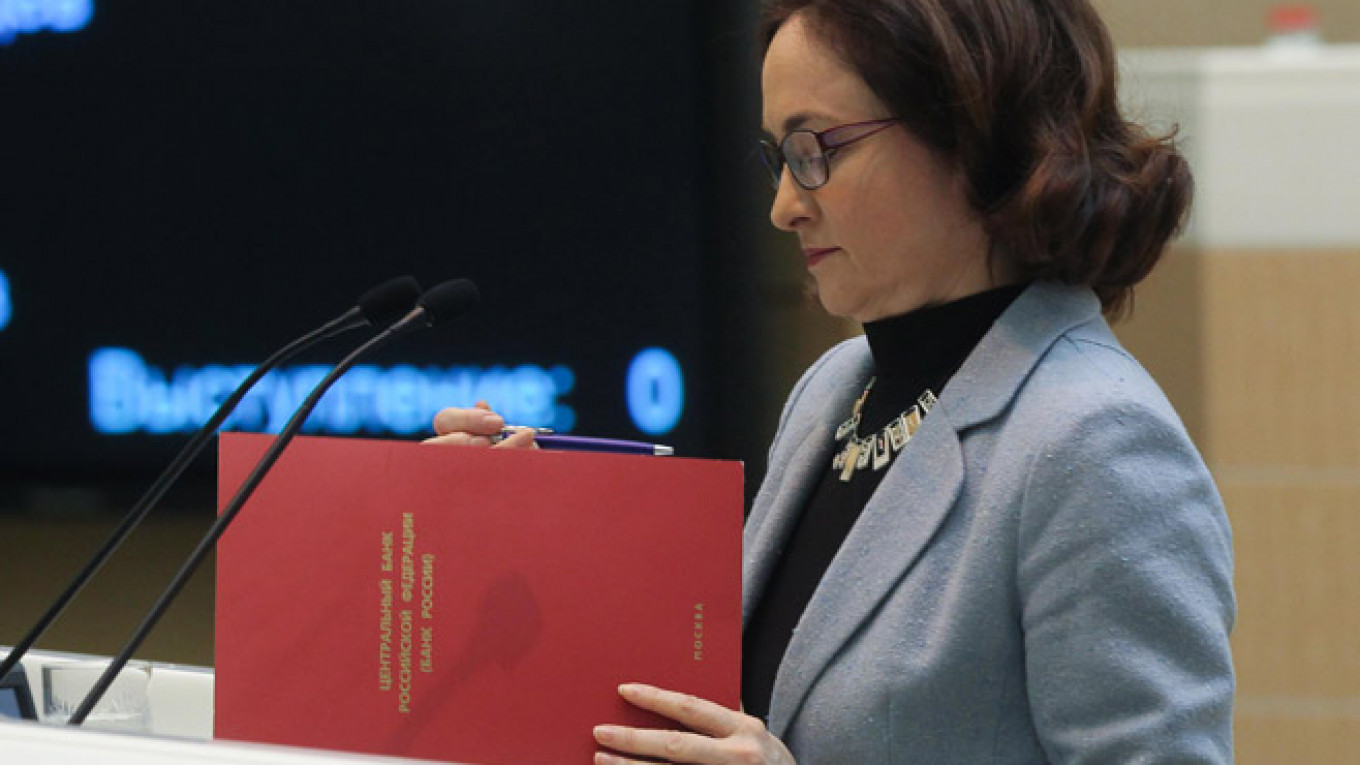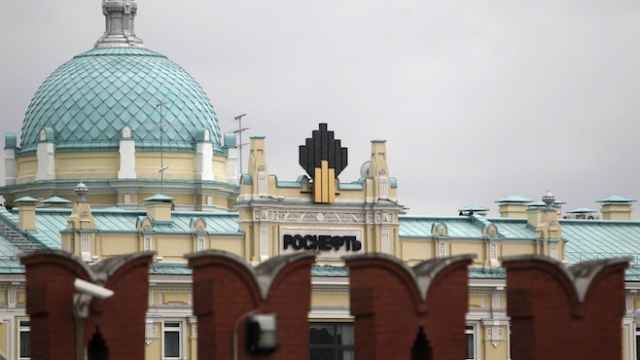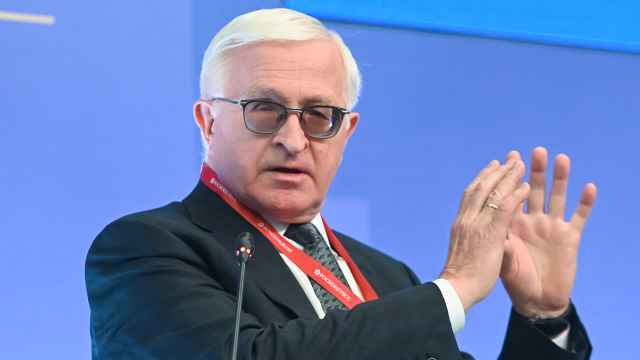Russia's Central Bank governor said a ruble-denominated bond worth nearly $10 billion that Rosneft issued in December had added to pressure on the currency because the market was expecting the oil producer to buy dollars with it.
Days after issuing the bond, Rosneft said it would not use the funds raised to buy foreign currency. The Dec. 11 bond, 625 billion rubles, was for projects in Russia, it said.
On Dec. 16, the day after Rosneft's disclaimer, the Central Bank had increased its benchmark interest rate by 650 basis points to 17 percent, citing the need to curb increased devaluation and inflationary risks. Hours later the ruble fell to an all-time low.
Rosneft has denied any link between its deal and ruble volatility.
However, in an interview with the Russian edition of Forbes magazine, Elvira Nabiullina said: "I think that Rosneft deal was non-transparent, unclear to the market and was an additional factor of volatility in the market. But not the main one."
"… the deal raised expectations that the rubles raised would reach the forex market … These fears had no ground … But still, there was this misunderstanding on the market which was a factor which played against the ruble," she said.
Rosneft's net debt stood at $45 billion at the end of last September and its repayments this year, mostly in dollars, will total $19.75 billion.
On Jan. 26, Rosneft raised 400 billion rubles in the domestic bond market, also saying it would not use the funds to buy foreign currency.
Last Friday, the Russian Central Bank unexpectedly cut its key interest rate by 200 basis points to 15 percent.
A Message from The Moscow Times:
Dear readers,
We are facing unprecedented challenges. Russia's Prosecutor General's Office has designated The Moscow Times as an "undesirable" organization, criminalizing our work and putting our staff at risk of prosecution. This follows our earlier unjust labeling as a "foreign agent."
These actions are direct attempts to silence independent journalism in Russia. The authorities claim our work "discredits the decisions of the Russian leadership." We see things differently: we strive to provide accurate, unbiased reporting on Russia.
We, the journalists of The Moscow Times, refuse to be silenced. But to continue our work, we need your help.
Your support, no matter how small, makes a world of difference. If you can, please support us monthly starting from just $2. It's quick to set up, and every contribution makes a significant impact.
By supporting The Moscow Times, you're defending open, independent journalism in the face of repression. Thank you for standing with us.
Remind me later.






